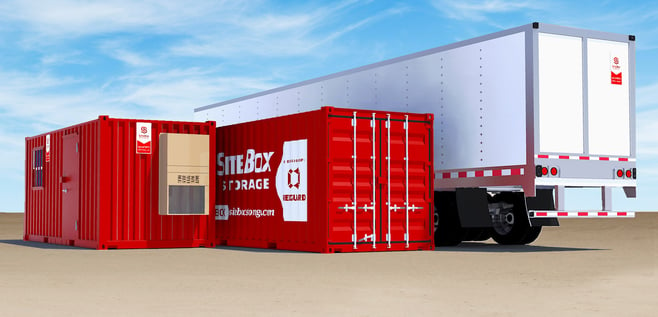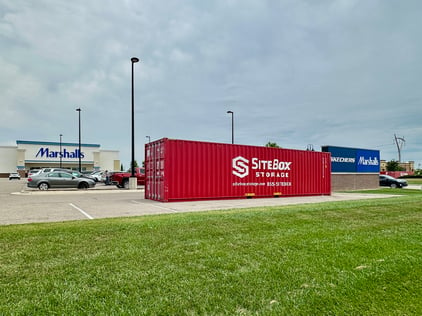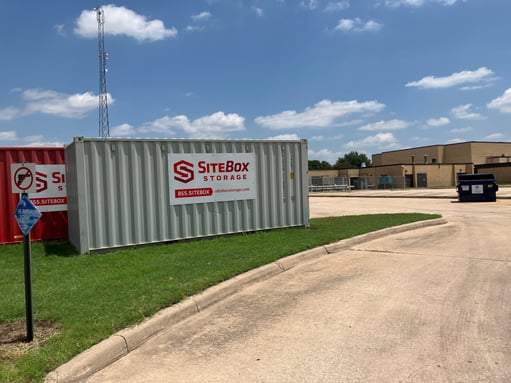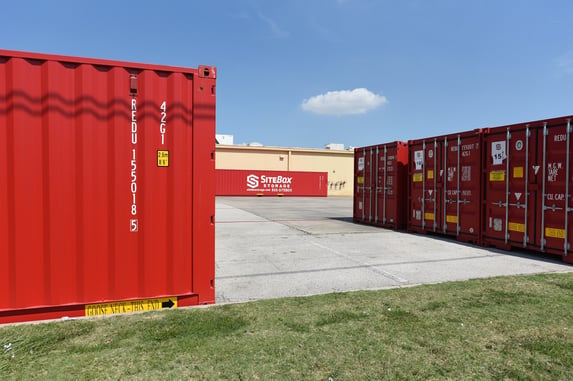Portable Storage Container Guide
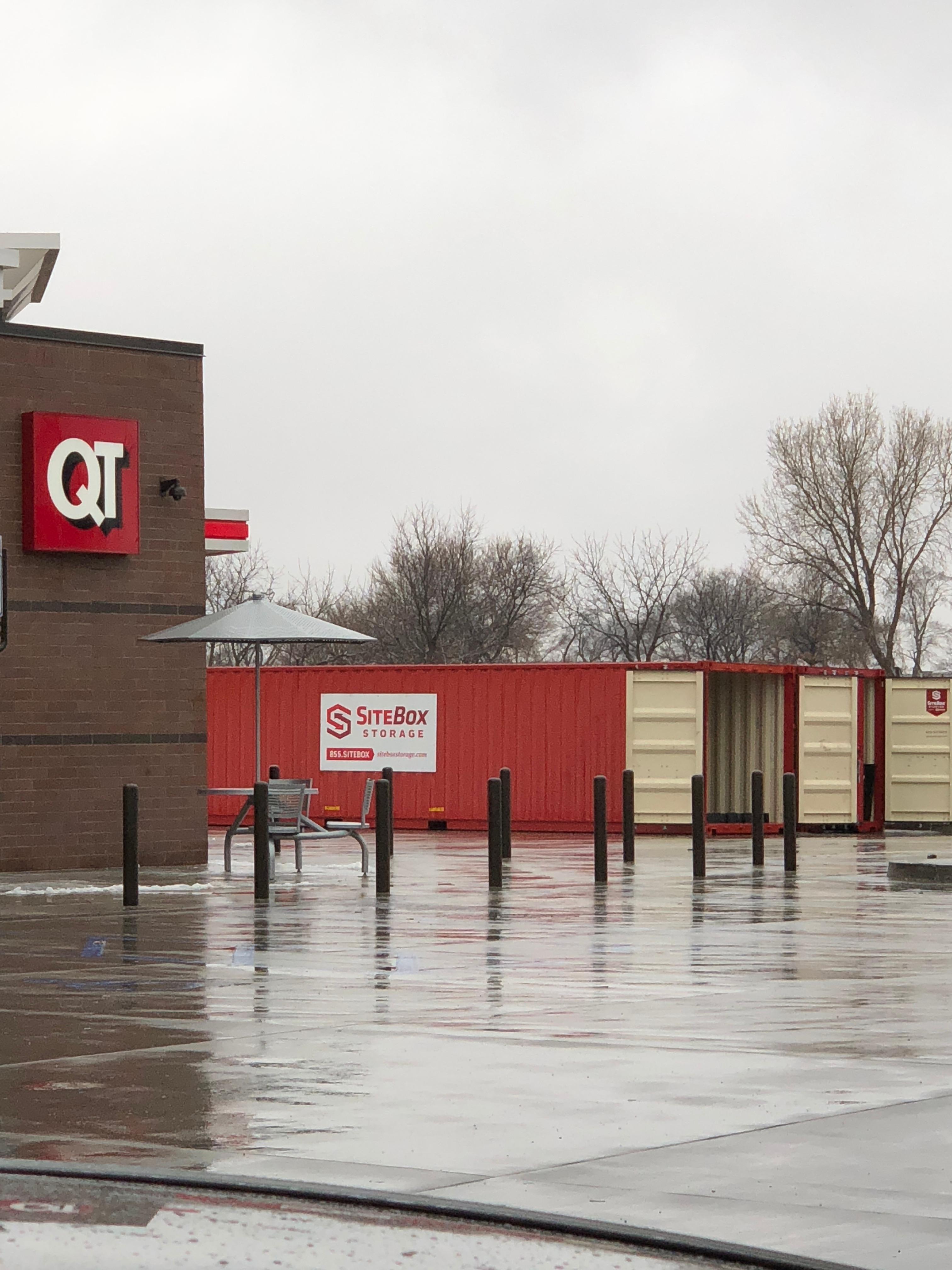
Keeping your remote workplace organized and secure often comes down to having proper onsite storage for tools, materials, and jobsite equipment. That old saying about a place for everything? It's actually solid business practice.
This guide helps you figure out which portable storage containers make sense for your situation. Construction site? Business relocation? Family move? Whatever you're dealing with, the right information saves time, money, and headaches.
The global market for portable storage containers is projected to hit $9.2 billion by 2027. Over 5 million are currently in use across North America. Around 60% of businesses use portable storage for short-term needs. These numbers show how much companies and people rely on containers for logistics and temporary storage.
What Are Portable Storage Containers?
Portable storage containers are basically cargo containers originally designed for shipping stuff across oceans. They're manufactured overseas and typically ship one load to the United States before starting their second life as storage solutions.
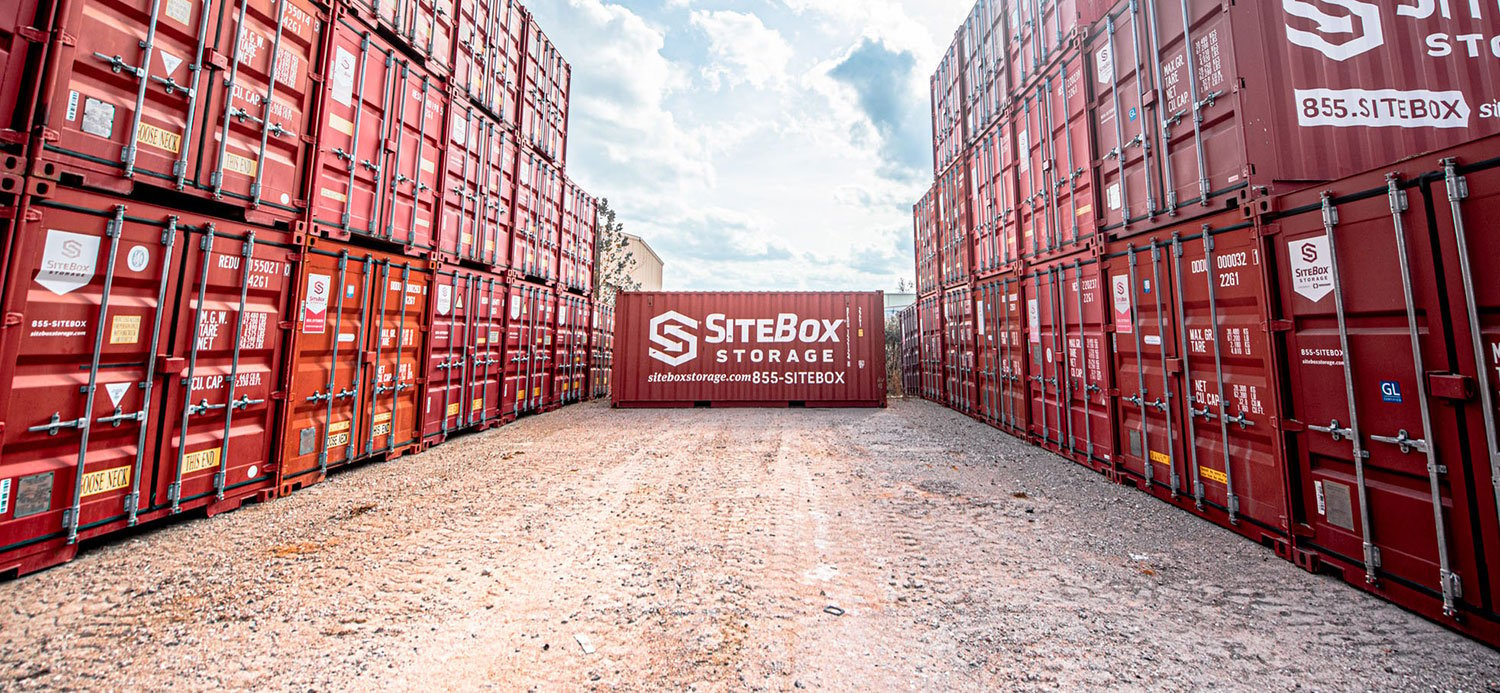
Built from heavy-gauge steel, these things can handle pretty much anything. They're made to survive ocean crossings. Water-resistant, rodent-resistant, designed to keep whatever's inside free from contamination. Lockable swing-out cargo doors at one or both ends let you get in easily but keep everything secure.
Standard sizes are 20 or 40 feet long, though 10-foot options exist. Width is 8 feet, height is 8.5 feet externally. After they get offloaded and emptied, they're inspected and sometimes modified for storage.
Approximately 30% of all cargo shipped worldwide uses these intermodal shipping containers. They last about 25 years with proper care.
Types of Portable Storage Containers
Standard cargo containers come in 10', 20', and 40' lengths and handle everything from construction materials to household stuff during moves. The stackable design means efficient storage in yards or warehouses.
High-cube containers give you extra height—9.5 feet instead of standard 8.5 feet. That additional space helps when storing tall items or maximizing vertical stacking.
Refrigerated containers keep things at controlled temperatures. Got perishable goods or temperature-sensitive materials? These include cooling systems and insulation.
Modified containers can be customized for specific jobs. Mobile offices with climate control, specialized storage with shelving, pipe racks, wall dividers—modifications take containers beyond basic storage.
Open-top containers have removable tops so you can load oversized items using cranes or forklifts. Great for construction materials, machinery, or anything too tall for standard doors.
Benefits of Using Cargo Containers
Security is the big one. All-steel construction makes breaking in really difficult. Lockable doors plus additional security features give you peace of mind for valuable belongings, tools, and materials.
Weatherproofing keeps stuff protected. Designed to survive ocean crossings, they handle rain, snow, wind, temperature extremes. Your belongings stay dry.
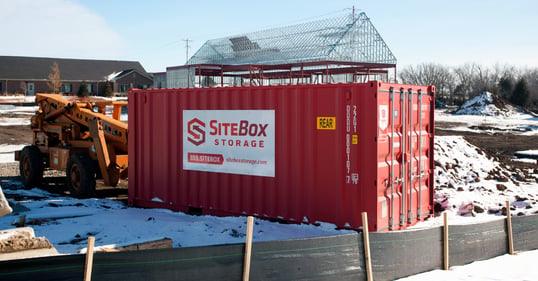
Versatility means using them for practically anything. Construction sites, retail overflow, business relocations, residential moves, temporary warehousing, equipment storage. They've been modified into homes, offices, and pop-up shops.
Mobility puts storage exactly where you need it. Unlike renting warehouse space where you're constantly hauling stuff back and forth, containers come to you.
Cost-effectiveness makes them accessible. Compared to leasing warehouse space, containers offer affordable solutions for temporary or long-term needs.
Ground-level access eliminates safety headaches with stairs or loading docks. Your crew can get in and out easily for faster loading and unloading.
Dimensions and Capacities
10-foot containers run approximately 10' x 8' x 8.5' externally. These work well for smaller projects, residential storage, or tight urban spots with limited space.
20-foot containers are what most people get. At 20' x 8' x 8.5', they offer roughly 1,160 cubic feet. This size handles most residential moves (three-bedroom house), small to medium business inventory, or construction site storage.
40-foot containers provide serious capacity at 40' x 8' x 8.5' with approximately 2,390 cubic feet. These handle large homes, substantial commercial inventory, or major construction operations.

Weight capacity matters as much as volume. Standard containers typically handle several thousand pounds. Confirm restrictions with your provider.
Door dimensions affect what you can load. Standard doors open about 7'8" wide by 7'6" tall. Make sure those work for your largest items.
Rental vs. Purchase Options
Renting gives you flexibility without long-term commitments. Most companies lease containers in 28-day chunks, great for temporary projects or uncertain durations. Delivery and pickup are usually included. Pricing changes by location—get a quote with your zip code for real numbers. Companies with decent customer service explain all fees upfront.
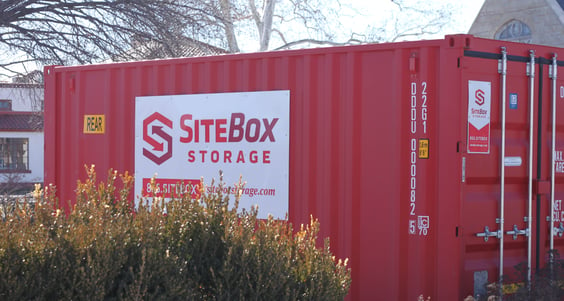
Buying makes sense if you'll need containers regularly over years. Continuous rental payments add up fast. Plus you can modify purchased containers however you want.
Lease-to-own programs split the difference. Some providers let rental payments count toward buying, giving you flexibility while building equity.
Check reviews and customer service ratings before picking a provider. Companies vary wildly in reliability and pricing honesty.
Loading and Unloading Tips
Plan your layout before throwing stuff in. Put heaviest items on the floor toward the front, spread weight evenly. This stops shifting during transport.
Use proper packing materials. Sturdy boxes for stacking. Wrap furniture and equipment. Packing services can handle this if you don't have time.
Leave pathways if you'll need to grab items before unloading everything. A narrow aisle lets you access stuff without moving everything.
Stack smart. Heavy boxes on bottom, lighter on top. Fill boxes completely so they don't get crushed. Padding between items stops banging.
Secure everything so it doesn't shift. Tie-downs or straps for large pieces. Items need to stay put during freight movement.
Label clearly. Mark boxes with contents and rooms. This saves time when unloading at your house, apartment, or business.
Get professional help if it makes sense. Movers who know container logistics work faster and safer. Get estimates from reputable companies.
Security and Weatherproofing
Steel construction is your first defense. Heavy-gauge steel walls, floors, and ceilings make cutting or prying through difficult.
Locking mechanisms keep access points secure. Standard containers have lockable door latches. Adding a quality padlock or lockbox bumps security up substantially.
Where you put it affects security. Stick containers in visible, well-lit spots. At remote locations, consider security cameras or fencing.
Insurance needs verification. Check whether your property insurance covers stuff in portable storage. Some providers include insurance options.
Weatherproofing comes built in. Sealed seams, weatherproof doors, steel construction keeps rain, snow, and moisture outside. Inspect before accepting delivery.
Insulation improves temperature control for climate-sensitive stuff. Stops extreme heat or cold from messing with contents.
Electrical modifications let you have lighting and power inside. Pre-wired units with outlets make working easier.
Interior modifications transform empty boxes into organized spaces. Shelving, workbenches, wall dividers, specialized racks, pipe racks, bike racks, tool organizers.
At SiteBox Storage, we've got nine customized layouts ready: mobile offices, restroom units, laboratories, guard shacks, data centers, and tool cribs. Pre-designed setups save time and money.
Popular Uses
Construction sites use these constantly for tools, materials, and equipment. Secure, weatherproof storage at the job site cuts down on jobsite theft.
Retail businesses grab containers for seasonal overflow. When holiday goods blow past warehouse capacity, a container near the store solves it.
Residential moves work great with portable containers. Load at your own pace, freight carriers handle transport, unload when convenient. Less stressful than traditional moving trucks.
Business relocations use containers for temporarily storing supplies, furniture, and equipment at new locations.
Schools and universities keep them as semi-permanent storage for equipment and supplies.
Emergency response teams use containers as command centers or supply depots during disasters.
Events and festivals utilize containers for equipment storage or modified versions as ticket booths and concession stands.
At SiteBox Storage, we've been doing this since 2005. Our team knows this stuff and we're ready to answer questions or consult on your project.
FAQ
What is a portable storage container? A tough steel box originally built for shipping cargo that got repurposed for storage. Weatherproof, secure, delivered wherever you need it.
What sizes are available for cargo containers? Standard sizes are 10', 20', and 40' long. All run 8' wide and either 8.5' tall (standard) or 9.5' tall (high-cube). A 10' holds about 539 cubic feet, 20' gives you around 1,160 cubic feet, 40' provides roughly 2,390 cubic feet.
How much do portable storage containers cost? Rentals typically run $100-150 monthly for 10', $150-250 for 20', $250-400+ for 40'. Buying ranges from a few thousand for used to $8,000+ for new 40' containers. Get a quote with your zip code for real pricing.
Can I rent a cargo container? Yeah, most companies rent with flexible terms. Standard leases are 28-day chunks and usually include delivery and pickup. Some offer lease-to-own where payments count toward buying.
What are common uses for portable storage containers? Construction site storage, retail overflow, residential and business moves, temporary warehousing, equipment storage, school supplies, emergency response, event equipment, modified versions as mobile offices or pop-up shops.
Are cargo containers weather-resistant? Absolutely. Built to survive ocean crossings, so they handle rain, snow, wind, temperature extremes. Steel construction, sealed seams, weatherproof doors protect everything. They're rodent-resistant too.
How do I transport a portable storage container? The provider or freight companies handle it. Containers go on specialized trucks. You need space for maneuvering (usually 100+ feet clearance) and level ground.
What features should I look for in a cargo container? Solid steel without rust, doors that work with good seals, secure locks, level floors, verified weatherproofing. For modified containers, make sure electrical systems or customizations are installed properly.
Can I modify a portable storage container? For sure. Common modifications include insulation, electrical and lighting, shelving, windows or extra doors, interior dividers, better flooring, HVAC systems. Some companies have pre-designed setups that cost less.
How secure are portable storage containers? Really secure when locked properly. Heavy-gauge steel makes cutting or prying through super difficult. Lockable doors with quality padlocks stop unauthorized access. Stick containers in visible spots.
